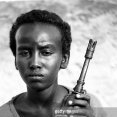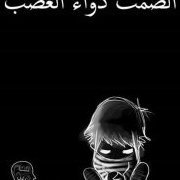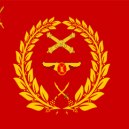Leaderboard
Popular Content
Showing content with the highest reputation since 01/22/2019 in Posts
-
4 pointsNiyaw horta comments kaagu kaama khasaarin aragti saxaad cabirtay oo aad qortay. Laakiin imika waanba sakhraansanay oo kuuma jawaabi karo indrkay talaabo wax waydiiya. Anigu geeridii nebiga ma ogiye
-
4 pointsOn the positive side this shows Somaliland is starting to realize ictiraaf isn't possible and taking more active role in the politics of Somalia.
-
4 pointsDP World completes 400 meter expansion of Somaliland’s Berbera port. 59Shares Friday August 14, 2020 DP World this week announced the completion of a 400-meter expansion of the Berbera port in Somaliland. The Dubai Port Company that is contracted to expand the port said once operational, it will increase the terminal’s capacity by 500,000 TEUs per year and further strengthen Berbera as a major regional trade hub servicing the Horn of Africa. In a tweet, DP World stated: “We have just completed a 400m quay and a new extension at Berbera Port, Somaliland. Once operational, it will increase the terminal’s capacity by 500,000 TEUs per year and will further strengthen Berbera as a major regional trade hub servicing the Horn of Africa.” The news has elicited excitement within the Somaliland government with the vice president Abdirahman Abdilahi saying: “As Deputy President of Somaliland and on behalf of the people, words can’t express my great excitement about the nearing completion of the Berbera port expansion. my gratitude goes to the Sheikhs of the UAE and the DP World.” DP world, the Dubai based world’s largest port operator is the key player in the rebuilding of Berbera, they have invested $442 million for the expansion of the port and are also the economic free zone. It has projected to complete work by February next year. advertisements In 2017 when the original agreement was signed, the CEO of DP World Mr. Sultan Ahmed bin Sulayem drew a parallel between the growth of Dubai and the development path Somaliland is on and added “Our vision is to make Berbera a trading and transportation hub for the Horn of Africa.” Berbera port is among the few corridors in the Horn of African region, which serves for both military and commercial purposes. The Berbera Port was built in 1964 by the Soviet Union and further expanded by the United States of America (USA) in 1982. It has served for both the Soviet Union and the U.S military within a span of 20 years. Once completed, facilities and service will surpass those in the neighbouring Djibouti according to the contractors. According to the DP World, the port will be able to handle the biggest ships compared to the other ports in the region and will complement activities at the Port of Djibouti and the Lamu Port which is also under expansion in the coast of Kenya. The Berbera Port expansion is the largest investment in Somaliland since it parted ways with Somalia in 1991. Work on the port expansion has reduced due to the measures put in place in the fight against the spread of the deadly coronavirus but the Somaliland government and the DP World have projected all facilities will be ready for operation early 2021. “We are very much on course. Of course the coronavirus has affected the speed at which we were on, but we will soldier on and deliver the most modern port facility in Berbera,” an official of the DP World said. The Berbera port expansion, designed to equip the Somaliland port for major vessels and transform it into one of Africa’s pre-eminent facilities. Expansion of the port started early last year with the first phase at a cost $101 million. Federico Banos-Linder, Vice President External Relations, DP World, said once the port is done, Somaliland will be one of the biggest and most modern players in the maritime industry in the Horn of Africa. “Already with phase one of the three phases done, we have increased the container capacity by 50 per cent and pushed volumes by 70 per cent which is a massive improvement. “We are now exporting 4 million livestock from 1.5 million just less than a year ago,” said Banos-Linder. Total investment of the two phases will reach $442m. The port’s current capacity is around 150,000 twenty-foot equivalent units [a measure of ships container carrying capacity] and is set to expand to 450,000 TEUs once development is complete. DP World firm will also create an economic free zone in the surrounding area, targeting a range of companies in sectors from logistics to manufacturing, and a $100m road-based economic corridor connecting Berbera with Wajaale in Ethiopia “Our aim is to make this an important regional hub for the maritime industry in the Horn of Africa,” DP World chairman and Chief Executive Officer Sultan bin Sulayem said. “We are within schedule in our work,” he added. DP World holds a 51 per cent stake in the Berbera port, while Ethiopia holds 19 per cent and Somaliland the rest
-
4 points
-
4 pointsThe recently upgraded Hagreisa land database registry is actually part of a larger project by Somaliland Gov't and SolidBlock Inc. The project will be using state of art block-chain based database to register land titles and other key assets.
-
4 pointsOodweyne They can't keep up. Befuddled, bemused and bewildered by Somaliland’s growing gravitas at international diplomacy. While they play tiddlywinks with Mudulood this and Dhuusomareeb 2.4 that. At least they're a curious bunch.
-
4 pointsThis is great improvement.The land database in Somaliland has been a consistent headache and cause for a lot of troubles including missing files, disputes etc. The introduction of GIS system will greatly simplify while at the same time is more secure and more reliable.
-
4 points
-
4 pointsAnd when they are training our navy and Air force it will be reported as a "Latin American" and an "Eastern European" country respectively
-
4 pointsThe political culture in Somaliland is an egalitarian one. Specially Beesha Dhexe. So for everyone from the unknown to the well known to have equal say and communicate their personal feelings or believes, it is a welcomed sign that the people are moving forward. This is why in Somaliland almost everything is openly discussed and nothing is hidden. The gov't is held to account, the ministers coming on TV explaining their side of the story. You will never see this type of open discussions of gov't ministers and opposition party engaging in lively political discourse about the goings on, anywhere else in the Somali regions. We know Mogadishu Khaire's moratorium on media engagement by his cabinet. We know Cheeseman, after almost 3 years, has never held an open questions interview. The same goes for Puntland where each Hagbad inheritor takes the enclave on a personal ride with no questions asked. So, all these public engagement, is music to my ears that the people are awake and taking part and shaping their future. What other Somalis take for granted, in Somaliland we don't. If we think the gov't is not on the right path, we tell it like it is without mincing words. And not wait until end of the tenor and call it 'what a bad leadersip it was' like Puntlanders do every 4years. Rather, you have to oppose what is wrong and support what is right every single day.
-
3 pointsThis guy is right. If the mad man goes ahead with this destruction of our existence as free people, anyone who cares about their future should join any armed resistance movement to fight the tyrant and the criminals around him.
-
3 pointsCarfaat Layskuma hayo in afrikaan iyo amxaaro maamulaan koonfurta, xoogna ku joogaan markaan dhexdeenii is dilnay oo daciifnay. Gaalo kale oo walaalahood ah yaa koofiyad cagaaran u xidhay nimankaasu waa sharciyaysan yihiin. Meesha kaliya oo aan islahaa waa lagu faani karaa waxay ahayd waqooyiga oo aan askari ajnabi ah joogin marnabana aan lagu arag. Laakiin snm waxay noqotay ninkii boqolka soomay oo bakhtiga ku afuray Baqdinta aan iminka qabaa waxay tahay in la arkay meesha aad ka jilicsan tahay oo ah "tol" la'aanta. Taasina waxay keenaysaa in amxaar kuul leh lagula walaaleeyo, dadkaagii soomaaliyeedna cadaw kuu noqdaan. Ugu dambayn Adeer hashaasu waa jabtay, waliba si sahlan geelu haduu jabo ma kabmo waa la qashaa, Hashaas jabtay cuna oo karsada intuu amxaar ceeriin ku cuni lahaa. Afeef Hadaad luuqadayda garan waydo raali ahaw, jiilkii hore yaan kasoo jeedaa. Ogowna aduunka waxaan ugu necbahay caadifadda ka sakow, inaan arko soomaali, soomaali kale maydkiisa kor taagan xataa haduu shbaab yahay.
-
3 pointsMr Khadafi my views about the points you mentioned were always made public here in this forum. I supported the garaad community or atleast their elite when they were with Somaliland and would occasionally cheer them when they chased away the trouble making Puntlanders from one dusty village to another. That was when they were willing partners in the state building project. However, now it just doesn't make any sense to force them against their will. My values and views are not random or driven by mere emotions. Rather they are carefully crafted with one simple aim in mind: that on the Day of Recompense, I shall be absolutely free from any guilt when it comes to the blood, property, and honour of the believers. When I would not enjoy standing in a high court in this world for trial after being accused of a serious crime like murder, why would I risk standing in the court of Allah carrying a heavy burden on my shoulders? Allah already made it clear to us that whoever participates in an evil deed shall share its evil outcome and whoever participates in a good deed shall reap its rewards. Fighting unjust wars, or supporting it financially, or encouraging the waging of such a war online or offline is quite simply booking a ticket to hell. Another way you could be shedding Muslim blood is by supporting politicians who are known wrongdoers or known for not fearing Allah. Voting for them or financing their campaign is aiding them in their transgressions.
-
3 pointsThese whole moves by Xasan Socdaal regime just proves how terrified they are about Reer Baraha Bulshada. Xasan, Xamsa and Alqabyaala openly are complaining about their corruptions being exposed on social media and declared amateur war on them. They first tried to buy them, starting with tolka Qaraxquute and C/llaahi Balwaan. Balwaan refused, however Qaraxquute is on per diem. Shiine Culey was paid by Xamsa as is Amiin Caamir by wasaaradda warfaafinta. They briefly shut down Cali Yare's Facebook accounts twice, declaring him dead, so was Abwaanad Naciimo Qorane. They tried to shut down Sh. Cabdi Xirsi's social media accounts by sending legal threatening letters to Meta and Youtube. Macalinka Luggeeya kama fakan, trying to hack while he is on live. C/risaaq Teera iyo Naciimo Qorane baasaboorada ayee ka kansaleen. Kabtan Ayuub weyba ka samreen. Moooryaan aanan xishood iyo sharci midna kaa qabaneynin dalka xoog inay ku heystaan rabo. They are really mad at Ilhaan Garaad because her superviral video about gabadhii ordeysay exposed their full incompetency.
-
3 points
-
3 pointsSanaag and Maakhir people are the winners. They fully boycotted the Somaliland election two years ago with almost zero members, and today they 100% participated the Puntland election. No one can dispute where they belong. There is nothing more democratic than the people deciding their future by vote without fear. Of the original five districts of Sanaag, only Ceel Af Weyn did not vote.
-
3 pointsWaa wax lagu tartamo oo lagu faano. Hambalyo imtixaanka dugsiyada sare ee koonfurta Soomaaliya inta ku wada baastay, gaar ahaan kuwa heerka koowaad galay. Reer Koonfur Galbeed on social media are celebrating seeing seven out of the top ten coming from Koonfur Galbeed. Me? I am celebrating to see our young sisters being in the top list.
-
3 points
-
3 pointsAwoowe the men holding back jahana will be iidoors. The men enjoying the highest level of what hereafter has to provide will be iidoors. We will be at the highest and at the lowest and will be leading at both ends. And will be content with it. Ninka Ibliis siyaasadda uu ka dhigtaa will be iidoors. Ninka Jibriil la soo tashaadana will be iidoors. But you folks, you will be looking for iidoors even inside hell.
-
3 points
-
3 pointsSomaliland offers location. It offers stable, secure and democratic platform that anyone who wants to invest in can build on and grow. Yes, Somaliland is poor in terms of economics but it is rich in terms of resources and hunger for success. The UAE is not building Berbera Port or Berbera corridor just out of humanitarian gesture. They are investing in Somaliland as business and expect their ROI and profits just like any other business investment. Somaliland is not looking for donations or Aid. We are looking for partnerships in business investments that will generate profits for both sides. This includes investment in the Berbera Free Zone to build factories and other value added services. For example one of the first things that Taiwan is expecting to finance and invest in is exploiting the fisheries. This is not just catching fish and move it to Taiwan. Rather it is about catching the fish and processing it in Somaliland exporting the 'Made in Somaliland' Product to Taiwan. That way the maximum benefit in terms of job creation and taxation is taken into account. The possibilities are endless.
-
3 pointsEl-Presidente Mudane Muse Biixi has proven again that he is no-nonsense man. And by that he has won a lot of admirers from around the world and specially in the crucial and important group in the Foreign Policy circles. Africans are watching and learning from Somaliland.
-
3 pointsWe need to transition away from live animal exporting towards a frozen meat trade. The animals would be saved from the suffering of the voyage It’s worth more to the Somaliland economy to process animals in Somaliland, instead of shipping them live (leather). Meat processing facilities would create thousands of jobs. Farmers selling to the frozen meat trade would be exposed to less risk from closed markets or markets disrupted by disasters.
-
3 pointsHello; Roughly 20 years ago I remember this beggar from Baidoa nearly lost it when President Riyaale expelled from Somaliland a couple of hundred Professional beggars from Baidoa and it seems he’s still bitter about it. Sadly in my absence from SOL no one bothered to set him straight so I will try to play the devils advocate here and break the sad news to him knowing fully well how obstinate beggars are. President Biixi does not chew qaad, smoke or drink. I know your beggers mind can’t and won’t grasp that but it’s a FACT. However I can’t say the same for your Fellow beggars back home in Baidoa and among the few in the diaspora. 75% of the income your folks earn begging in Mogadishu is spent on those 2 vices. both alcohol and qaad have become a favorite pastime in Baidoa enjoyed by many of the locals. Even the former chief beggar Jawari was an alcoholic. Excuse me if I forgot my manners but one can’t but help kick an obtuse beggar once in a while. good to see the old folks who I knew from many many years ago btw.
-
3 points
-
3 pointsETHIOPIA LANDS IN SOMALILAND WITH GOODIES, AS EGYPT CHECKS OUT. An Ethiopian delegation led by Finance minister Ahmed Shide has arrived in Hargeisa the capital of Somaliland to discuss bilateral relations. This just a week after a team from Egypt held talks with the Somaliland government mooting plans to set up a military base in the north west regions of the country, a move that has seemingly not gone down well with authorities in Addis Ababa who are in a diplomatic spat with Cairo over the River Nile. Somaliland has offered to mediate between Ethiopia and Egypt in their friction over the construction of the Grand Renaissance Dam along the Blue Nile, arguing that the impasse can be amicably solved through dialogue. Somaliland Deputy Foreign Affairs minister Liban Youssouf Osman said the two nations should consider having a dialogue for the sake of unity. Ethiopia is Somaliland’s key ally in the horn of Africa. The two countries have partnered with the DP World and the government of the United Arab Emirates to rebuild the port of Berbera which plays a key role in the maritime connections between the horn and the middle east. Ethiopia owns 19 per cent shares of the Berbera Port, Somaliland has 30 per cent while DP World enjoys a 51 per cent stake. The UAE and the Abu Dhabi Fund for Development Construction are also building a 250-kilometre dual carriageway between the city of Berbera and the Ethiopian border town of Togwajale. While there has been suspicion Ethiopia is angling towards Somalia especially in the talks between the two countries initiated by the United States and hosted by Djibouti, the two (Ethiopia and Somaliland) remain key development partners. The last fortnight has seen Somaliland go full throttle to build new alignments, signing a pact that has seen the country enter into diplomatic partnership with Taiwan and the latest agreements with Egypt as it continues to push for international recognition. The new relationships have not gone down well with China on one side who are unhappy with the deals with Taiwan and Ethiopia over the indulgence with Egypt. But Somaliland says Egypt is crucial to her international recognition quest. “Egypt can play a major role in our international recognition, as it is a major country in Africa and the Arab World, which can help push our case for recognition in both the African Union and Arab League,” Liban Youssouf Osman The Ethiopian delegation will therefore be out to stamp itself as Somaliland’s key partner in the attractive Horn of Africa region. Somaliland remains internationally unrecognised, but the traffic into the country remains on a high. Source: EABW NEWS Share
-
3 pointsWAJAALE NEWS DAWLADDA ETHIOPIA OO XAFIISKEEDA HARGAYSA GAADHSIINAYSA HEER SAFAARADEED! July 20, 2020 - Written by Editor: Addis Ababa(W,N), Dawladda dalka Ethiopia ayaa xafiiska Arrima Ilaaliyaha (Mission) ee ay ku leedahay Caasimadda Somaliland ee Hargeysa gaadhsiinaysa heer Safaaradeed (Embassy), Sidaana Waxa Arabsiyo Online u sheegay Saraakiil sarsare oo ka tirsan Wasaaradaha Arrimaha Debadda ee Ethiopia iyo Somaliland, kuwaasi oo codsaday in aan la magacaabin. Sida ay Saraakiishani sheegeen, talaabadani ay dawladda Ethiopia qaadayso, waxay ka dambaysay ka dib markii ay todobaadkani dhexdiisa wada hadalo dhinaca Telefoonka ahi dhexmareen masuuliyiinta Somaliland iyo kuwa Ethiopia. Wada hadaladani ayaa la sheegay inay salka ku hayeen, ka dib markii ay dawladda Ethiopia ka shakiday ujeedada Wefti heer sare ah oo booqasho dhawr maalmood qaadatay ku yimid Somaliland. Wasiir ku xigeenka Wasaaradda Arrimaha Debada ee Jamhuuriyadda Somaliland Liibaan Yuusuf Cismaan oo waraysi arrintani la xidhiidha siiyay Wargeyska Daily News Egypt oo ah maalinle madax banaan oo ka soo baxa dalka Masar, waxa uu sheegay inay Somaliland iyo Masar isla soo qaadeen sidii ay iskaga kaashan lahaayeen is-dhexgalka dhinaca ganacsiga, gaar ahaana xoolaha iyo Beeraaha. https://dailynewsegypt.com/2020/07/18/somaliland-says-keen-on-stronger-ties-with-egypt/ Sidoo kale Mr. Liibaan Yuusuf Cismaan, Wasiir KU xigeenka Arrimaha Debada iyo Iskaashiga Caalamiga ah ee Wasaaradda Arrimaha D ebada ee Jamhuuriyadda Somaliland, waxa kale oo uu ka jawaabaay su’aalo la xidhiidha in imaatinka weftiga Masar ee Hargeysa ay cabasho ka muujisay dawladda Ethiopia, waxaanu isaga oo arrintaasi ka hadlaya yidhi. “waxaanu wada xaajood la geli karnaa dal kasta oo aanu danahayaga kala hadli karnaa, taasi waa shaqadayada’” ayuu y idhi, Wasiir ku x ixgeenku. Waxaanu intaasi ku daray oo uu yidhi. “Xidhiidhkayaga Masar wax dhaawac ah u geysn maayo, xidhiidhka aanu la leenahay Ethiopia, waxaananu ugu baaqaynaa labada dhinac ee Ethiopia iyo Masar in khilaafkooda dhinaca Biyo XIdheenka Ethiopia inay wada hadal ku dhamaystaan, haddii loo baahdana annaga laf ahaantayadu waanu dhex-dhexaadin karnaa, maadaama oo aanu khibrad u leenahay xalinta khilaafaadka” . Hase yeeshee, dawladda Ethiopia ayaa sida ay wararku sheegeen waxa ay bilawday sidii ay kor ugu qaadi lahayd xidhiidhka saaxiibtinimo ee ay la l eedahay Somaliland, tan iyo markii ay Jamhuuriyadda SOmalilanad Madax Banaanideeda kala soo noqotay dalka sannadkii 1991-kii oo ay ahayd d awladda keli ah ee iyadu goob joogga ka ahayd goobtii lagaga dhawaaqay madax banaanida Somaliland ee magaalada Burco, halka ay dawladda Masar oo waqtigaasi doonaysay inay wefti u soo d irtana la sheegayy in loo diidday saababo la xidhiidha taageero military oo ay siin jireen d awladdii hore ee Maxamed SIyaad Barre oo xasuuq baahsan ku haysay dadweynaha Somaliland sannadihii sideetamadii.. Maamulkii xilligaasi ee dalka Massar waxa uu talaabadaasi kaga jawaabay inuu u ololeeyo go’aamo go’doomin ah oo ka dhan ah madax banaanida Somaliland oo uu ka ansixiyay ururkii midnimada Afrika iyo Jaamacadda Carabtaba, aakhirkiina Qaramada Midoobay. Isku soo duuboo, khubarada caalamiga ah ee ka faaloodda arrimaha GObolku waxa ay ku sheegeen xidhiiddhka Cusub ee Somaliland Iyo Masar, mid ay ku doonayso inay noqoto dal samaysanaya saaxiibo cusub, isla markaana aan luminaayn saaxiibadiisii hore.
-
3 points
-
3 pointsKenya's Raila Odinga is expected to arrive in Hargeisa soon. There are political movements in Nairobi in support for Somaliland. Mr. Raila Odinga is a strong supporter of Somaliland.
-
3 pointsThe Mandarin bit of what the guy is writing could be "they are not the pirates".
-
3 pointsTaiwan trains counter-terrorism troops for Middle Eastern country Taiwan's 42-year-old MPSSC has already trained one group of recruits while another on hold due to pandemic, local media claims 3454 By Sophia Yang, Taiwan News, Staff Writer 2020/05/09 13:55 MPSSC in 2017. (Wikimedia Commons photo) TAIPEI (Taiwan News) — A high-ranking military official has claimed that a Middle Eastern country has inked a training agreement with Taiwan, according to a Liberty Times Net (LTN) exclusive story. Under the deal, Taiwan's Military Police Special Services Company (MPSSC), under the Military Police Command, is responsible for coaching the Middle Eastern country's counter-terrorism force. They will travel to Taiwan in groups for training that will enhance their knowledge, skill, and responsiveness in the war against terror. Similar to the United States Army Special Forces (Green Berets), the MPSSC was established in 1978 and has earned international acclaim for counter-terrorism operations and protecting high-ranking officials and ambassadors in Taiwan. It is also known for anti-hijacking and anti-sabotage operations. Taiwan is one of the few Asian countries capable of training special task forces and providing such services to other countries, according to LTN. It reported the first batch of trainees has concluded training and returned to home, while a second batch of recruits is on hold due to the COVID-19 pandemic. https://www.taiwannews.com.tw/en/news/3930970?fbclid=IwAR0emABRyt6O1Tu0X9gkWMx7vMox2MgKtLVwCAOv3zIB_heUQwd_e2IfBps Rumours has it that it's Somaliland.
-
3 pointsSomaliland has the best case in africa legally really. It's just that lack of economic interest from western powers is the problem. But it has shown the world that Somaliland is here to stay and that no one in Somalia can change that. Deep inside most of the koonfurians know this to the 2 countries. Have been to seperate countries for almost 3 decades this will surpass the short lived union of 20 years. In the later half of afweyne reign somaliland was at war with Somalia. In the end runtay tegeysa.
-
3 pointsIn all seriousness, the tragedy of Somalis is our small-mindedness. Men like Axmed Gurey, Sayidka, Sheikh Barsane and Nasiib Buundo fought in the name of Islam or in the name of their Somalis and fought against common. And history shows and no one Maryooley can deny, the armies they commanded hail from all Somalis. We can question their methods but their goals were clear. Their history is Somali history!
-
3 pointsIt was always called Doollo for a over century. Haven't you guys heard of the famous poem by Cali Dhuux "Doqonkii "0" ahaa, Doollo laga qaadye Loo diid Dannood iyo hadduu, degi lahaa"
-
3 points
-
3 points
-
3 pointsGuess who the Reer Koonfurku hate most these days? It is not Ethiopia, in fact they are in bed with the Xabashi, their President is happily doesn't mind being the Escort for Dr. Abiye Ahmed. It is not Kenya either, because you can see how much they tolerated Kenya's unwarranted naked attacks, they were turning their cheeks everytime they get slapped on the other cheek. And definitely, it is not Eritrea, Uganda, Burundi or all those. Guess which country is their number one enemy. It is United Arab Emirates and the United Kingdom. Now using the old Algebraic formula of elimination. it is not UK or United Arab Emirates per say either. It is in fact, Somaliland. Now you know, Reer Koonfurka Xabashi wa necebnay... this or that. It is none of that.
-
3 pointsBuild the road Kililka Somaliland that will bring together 10 million Somalis and other neighbors Don't panic, don't even bother to think regarding the show dog and pony for what goes in HoA. Never buy into the most abused words in the HoA today -regional integration -lol. Except for the road, port, common security..everything else is empty talk. With Ghelleh just talk through third person and maybe at weddings and heaven forbid burials of common friend or prominent person, never with dog and pony show kind of trips and visits. The sooner you finish the big projects the sooner you can approach Turkish, India...not China, Russia, Iran....those are too toxic at this time. Even India, Britain, Turkish are dangerous as America is pressuring them to be solely under its feet, but as small fish you can say oh I was simply swimming and somehow the ocean took me there. I am a poor guy no GPS of my own. This road, port, dry port project may prove to be the most important project for the ages with far reaching consequences. It might even ensure that you will never have big security problem from both Kililka and Djibouti which means most of your borders can be guarded by locals and few militia locals, nothing to spend.
-
3 points
-
Newsletter


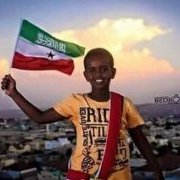

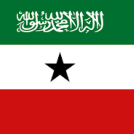
.thumb.jpeg.79edf7e652eaa56ebe85e2c649f6cd14.jpeg)



